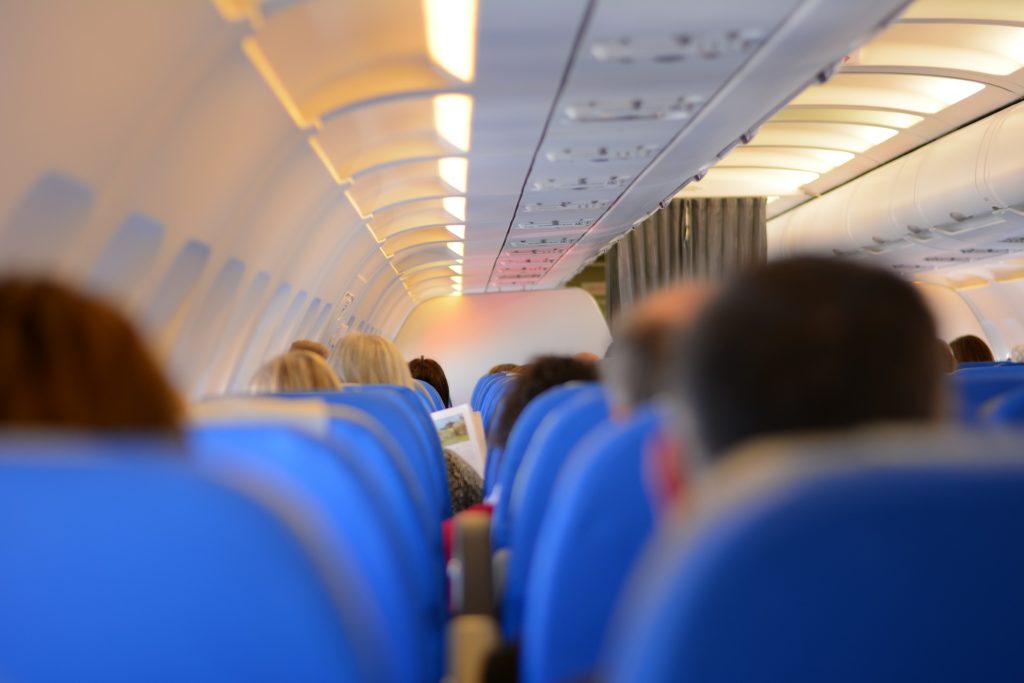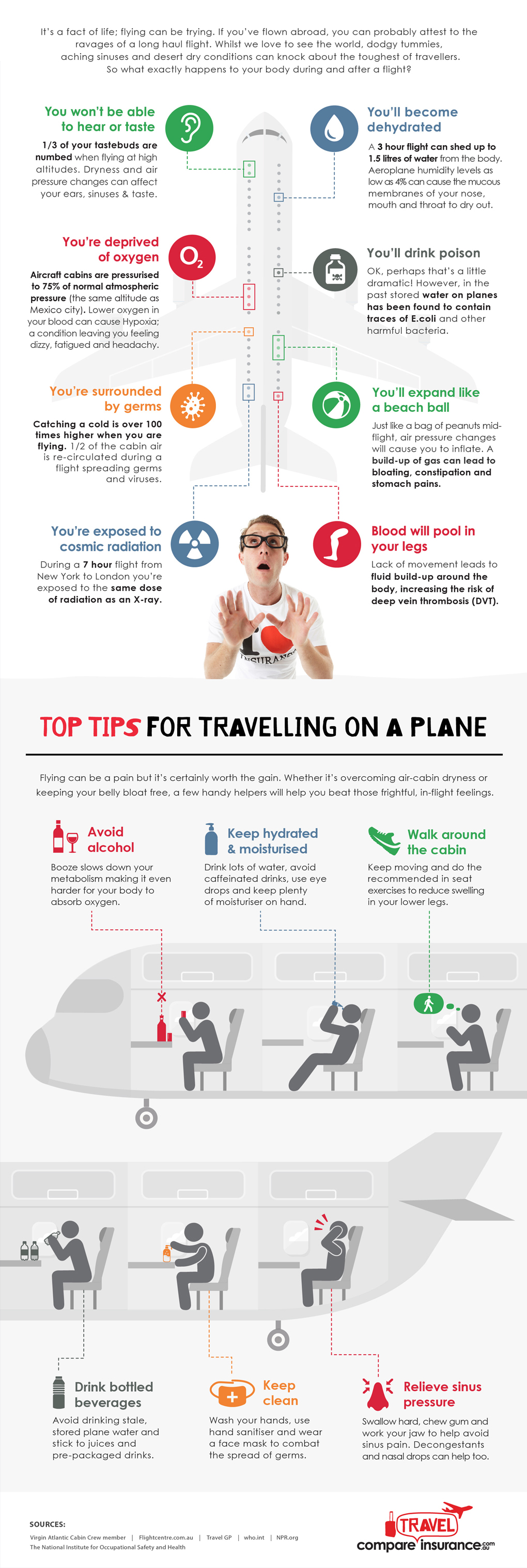It’s Not Only Jet Lag: What Happens to Your Body During a Long Flight?
You've either just returned or are about to return from your Mid-Autumn Festival holiday. If you're one of the few and the fortunate, you could afford to observe the holiday in its purest and most traditional form: making the pilgrimage all the way home to spend the week with your family. But just when your body has adjusted to your indigenous timezone, it's time to turn around and do it again in reverse, enduring a long-haul flight and all of the other (sometimes unpleasant) things that might go along with it at 30,000 feet. Jet lag is only one of the situations that can disrupt an otherwise enjoyable travel experience, and now you may be dealing with more than just fatigue.

Flight sickness
While part of the air inside the plane is re-circulated and another part is drawn from the outside, germs and other microbes might still lurk in some places we thought were clean. CNN said in a 2010 article that six zones which can harbor germs and other infectious microbes in the plane are: water, seat pockets, tray tables, airplane meals, airplane pillows and blankets, and the airplane lavatory. And because the cabin is a contained space, the chance of catching a cold is a hundred times higher than on the ground.
Cramps, bloating, and oxygen deprivation
When you’re on a flight, you might feel several things happening to your body: You might feel dry and dehydrated, your legs feel numb because of limited leg room (or deep vein thrombosis), and you can feel bloated but can’t breathe properly. Research and health agencies say these are the effects of a myriad of in-flight situations like a reduced level of cabin air pressure, air circulation, and humidity.
It’s not only the changes in your body that can affect your flight experience. A lot of times, you will feel fine or healthy, until your co-passengers become a headache. People on a plane behave very differently. Some are pleasant and friendly, others are unruly and so obnoxious that you wonder why in the earth they are allowed to be on board. And when things go awry, it can lead to air rage, which Travel Doctor website says is a situation caused by different psychological and physical conditions such as exhaustion, stress, and bad behavior.
So what can you do, then?
Well, it’s good to be informed about these kinds of situations so that you can prepare for the worst. In a recent blog, we discussed the importance of having vaccinations before traveling so that your body can get immunity from several serious infectious diseases. Travel and health agencies recommend that passengers should walk around the cabin to reduce pressure and swelling in legs and keep your body clean by using a hand sanitizer and face masks. Compare Travel Insurance has a great infographic (see below) that you can use before you set off for your journey.
Photos: Spoba, StelaDi (via Pixabay), Compare Travel Insurance








